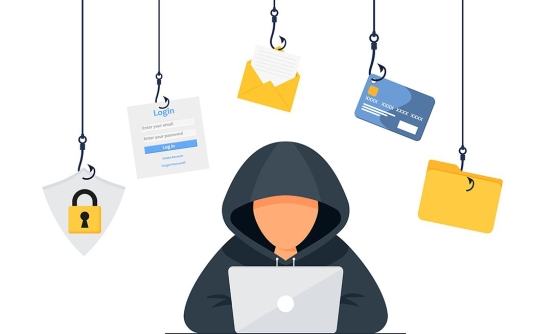How to Spot and Prevent Financial Scams
Financial scams are evolving rapidly, targeting people of all ages and backgrounds. Whether through fake investment opportunities, phishing emails, or impersonation schemes, fraudsters are constantly looking for ways to steal money and sensitive information.
Financial scams are evolving rapidly, targeting people of all ages and backgrounds. Whether through fake investment opportunities, phishing emails, or impersonation schemes, fraudsters are constantly looking for ways to steal money and sensitive information.

The best defense is knowledge. By learning to identify red flags and taking a cautious approach, you can significantly reduce your risk of falling victim to these tactics.
Common Warning Signs
Most scams rely on creating urgency or fear. If you’re pressured to act immediately—whether it’s paying a bill, sharing your bank details, or claiming a prize—it’s a major warning sign. Fraudsters often pretend to be officials from banks, delivery services, or government agencies. They use convincing logos, email addresses, and caller IDs to appear legitimate.
Be suspicious of anyone who asks for payment in unusual forms such as gift cards, wire transfers, or cryptocurrency. These methods are difficult to trace and nearly impossible to recover once sent. Always pause before providing sensitive information or money.
Types of Scams to Watch Out For
Phishing Attempts – Fake emails or texts designed to trick you into revealing login details.
Tech Support Scams – Pop-up warnings or unsolicited calls claiming your computer is infected.
Impersonation Scams – Criminals posing as relatives, friends, or coworkers in urgent need of help.
Investment Frauds – “Guaranteed” returns that sound too good to be true.
Online Purchase Scams – Fake websites or sellers offering items that never arrive.
Job Scams – Work-from-home offers requiring upfront fees or personal information.
Knowing how these schemes work allows you to recognize patterns and respond wisely.
Verify Before You Act
When you receive unexpected communication, resist the urge to click links or download attachments. Instead, verify the message by contacting the company directly using information from their official website. Fraudsters can easily spoof phone numbers and email addresses, so relying only on what you see in a message is risky.
Real businesses will not rush you into decisions or demand sensitive information over unsecured channels.
Protecting Your Personal Information
Your personal data is highly valuable to scammers. Limit what you share publicly on social media, especially details like your birthday, address, or travel plans. Use unique, strong passwords for each account, enable two-factor authentication, and regularly review financial statements for unusual activity.
Taking small but consistent steps helps prevent identity theft and limits the damage if your information is compromised.
What to Do If You’re Targeted
If you suspect fraud, act quickly. Contact your bank or credit card provider to block unauthorized activity. Report the scam to consumer protection agencies or your local fraud reporting authority. Early action increases your chances of recovering losses and protects others by alerting regulators to new tactics.
Remember, being targeted by a scam is not a personal failure—it is the result of criminals using manipulative strategies. What matters most is how swiftly you respond.
Trust Your Judgment
Often, your instincts will alert you before your brain does. If an offer feels suspicious or a request seems unusual, stop and evaluate. Consult a friend, search online for similar reports, or simply take more time before making a decision.
Staying Informed Is the Best Defense
Fraudsters rely on speed, pressure, and secrecy. By slowing down, questioning unusual requests, and keeping informed, you can stay ahead of their tricks. Protecting yourself also means protecting your community—sharing knowledge reduces the chances of others becoming victims.
With awareness and caution, you can safeguard your money, your identity, and your peace of mind.

